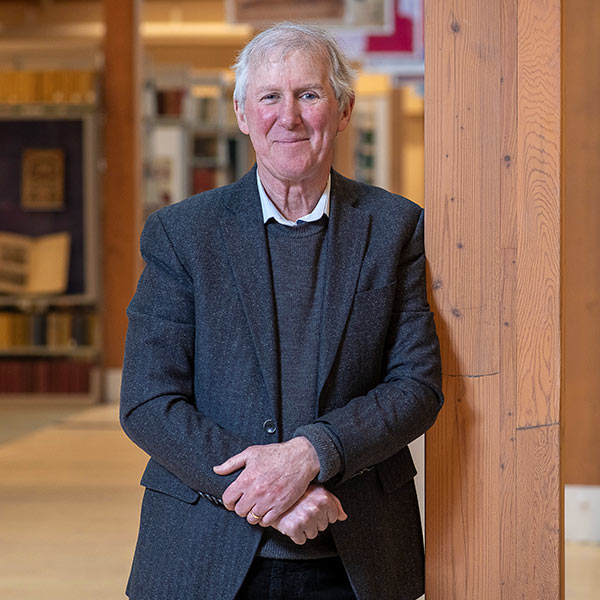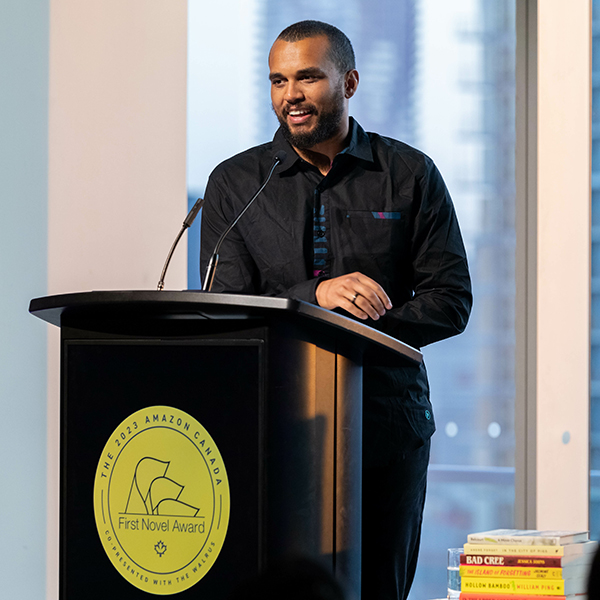When Benjamin Perrin, LLM’07, served as the top criminal justice advisor to then prime minister Stephen Harper in the early 2010s, he unhesitatingly supported the Conservative government’s aggressive, tough-on-crime policies – most notably, drug prohibition, harsher penalties for drug offences, and the Harper government’s unsuccessful attempts to shut down Insite, Canada’s first supervised safe-injection clinic, on Vancouver’s Downtown Eastside.
Perrin sees things very differently now.
“I thought supervised consumption sites enabled drug use, and that giving people who were addicted a safe supply of free drugs was an insane policy,” says Perrin, a UBC law professor specializing in criminal justice and international law. “I deeply regret that I let my political ideology take the place of evidence.”
In his new book Overdose, Perrin makes a passionate and persuasive case for progressive, evidence-based solutions to the deadly, ongoing opioid crisis, which has claimed more than 14,000 lives in Canada since 2016.
The Harper government that Perrin once supported probably wouldn’t think much of some of the life-saving interventions Perrin calls for in his book: expanding supervised consumption and overdose prevention sites; increasing rapid access to evidence-based treatment; and decriminalizing possession, use and purchase of illicit drugs.
Perrin calls on readers of all political persuasions to put aside their pre-conceived notions and to consider the facts – as he did – when they assess the complex root causes, failed approaches and best remedies for the opioid crisis.
Why do people start using and why can’t they stop? Why is Fentanyl killing so many people? Has criminalizing drugs failed and can we prosecute our way out? How can we help people to stop using? Would decriminalizing make things worse?
As he did research for the book, Perrin reviewed major reports and peer-reviewed studies. He interviewed more than 40 experts, including police chiefs, doctors, judges, addiction specialists, first responders, coroners, and advocates for opioid users. He also steeped himself in the stories and lived experiences of people who used drugs, including overdose victims who survived and those who didn’t.
Perrin takes a close look at the facts surrounding Insite. In a unanimous 2011 ruling, the Supreme Court of Canada ordered the Harper government to keep the clinic open because of its proven benefit in saving lives.
In more than 3.6 million visits to Insite for safe injections since 2003, staff have intervened to treat 6,440 overdoses and not one person died. Like 24-year-old Taylor, whose life was saved a few times: “Without the staff I wouldn’t be here today. My parents would be planning my funeral instead of camping trips in the summer.”
Perrin says that researching and writing the book was transformative: “For people to have a change of mind, they often need a change of heart. By sharing my stories and evidence, I hope people will walk the same road I did.”
That road started as he was doing some soul-searching in his own life. As Perrin drove from his east Vancouver home to the law school, he listened to daily news reports about the growing number of overdose deaths. When a public health emergency was declared in B.C. in 2016, it became painfully clear the policies he’d supported were failing and costing lives.
“I pulled over on a nondescript residential street and started crying. It bothered me that I didn’t seem to care more. I prayed and asked God to give me a heart of compassion for the people affected by the opioid crisis,” says Perrin, who felt a personal and moral responsibility to use his legal, political and investigative expertise to help somehow.
Perrin is no stranger to tough questions and investigations. While doing his master’s degree in international criminal law, he interned at McGill’s Centre for Human Rights and Legal Pluralism (CHRLP) and was assistant director of its Special Court for Sierra Leone Legal Clinic. Perrin and his peers provided legal research to judges in Freetown trying cases of suspected human rights violations during the decade-long civil war, ranging from intimidating voters by hacking off their hands to conscripting child soldiers.
“My time as a graduate student at McGill was instrumental in my decision to become a law professor and activist. I saw professors and research centres that were making a significant positive impact in the world. It was exciting and inspiring to be part of that, doing human rights advocacy work that was active, engaging and meaningful,” Perrin recalls.
He also assisted judges in bringing alleged war criminals to justice at the International Criminal Tribunal for the former Yugoslavia (ICTY) as a summer intern before coming to McGill, and clerked at the Supreme Court of Canada.
To investigate and write Overdose, Perrin drew on those experiences and the activist research methods deployed in his 2010 book, Invisible Chains: Canada’s Underground World of Human Trafficking. For that exposé, he and his students interviewed police officers and social workers, dug up elusive statistics, and documented heartbreaking stories of the women and children exploited as sex slave trade victims.
“Like Professor René Provost [one of Perrin’s McGill professors and CHRLP’s former director], I actively involve my students through research on real-time, criminal justice issues,” he explains.
Today, as the simultaneous COVID-19 and drug-overdose crises converge, Perrin is concerned that overdose deaths will increase if people have reduced access to a safe supply of drugs and medical treatment. He urges governments to fund initiatives that ensure that people with opioid addictions have access to safe supplies to manage their consumption and treatment, such as mobile overdose-prevention sites, so they can self-isolate and receive medical support as needed.
Perrin has long been a vocal advocate for the rights of crime victims in Canada’s justice system. Overdose became the advocacy story he never expected to write because of the critical transformation he underwent in no longer viewing opioid users as criminals, but as victims, and at times heroes. “I began to see people who are homeless and use drugs differently, but never expected to come out supporting decriminalization,” he says.
He points to Portugal, which decriminalized the possession of small amounts of illicit drugs while expanding access to treatment. Since launching that approach, opioid-related overdose deaths in the country have sharply declined. Perrin notes, though, that the current Trudeau government has shown little enthusiasm for considering decriminalization beyond its legalization of marijuana.
Perrin credits Douglas “Little Doug” Nickerson for helping to reshape his thinking about drug addiction. The friendly, red-bearded man, who was homeless and had struggled with opioid addiction, rode his bicycle up and down Surrey’s 135A Street with a naloxone kit, administering the opioid agonist. He reversed 148 overdoses, before dying of pancreatic cancer in 2017 at age 59.
“Doug had such obvious care and compassion. He was doing what he could from where he was at and saved many lives. He’s a real hero and that’s why I dedicated the book to him,” Perrin says.


